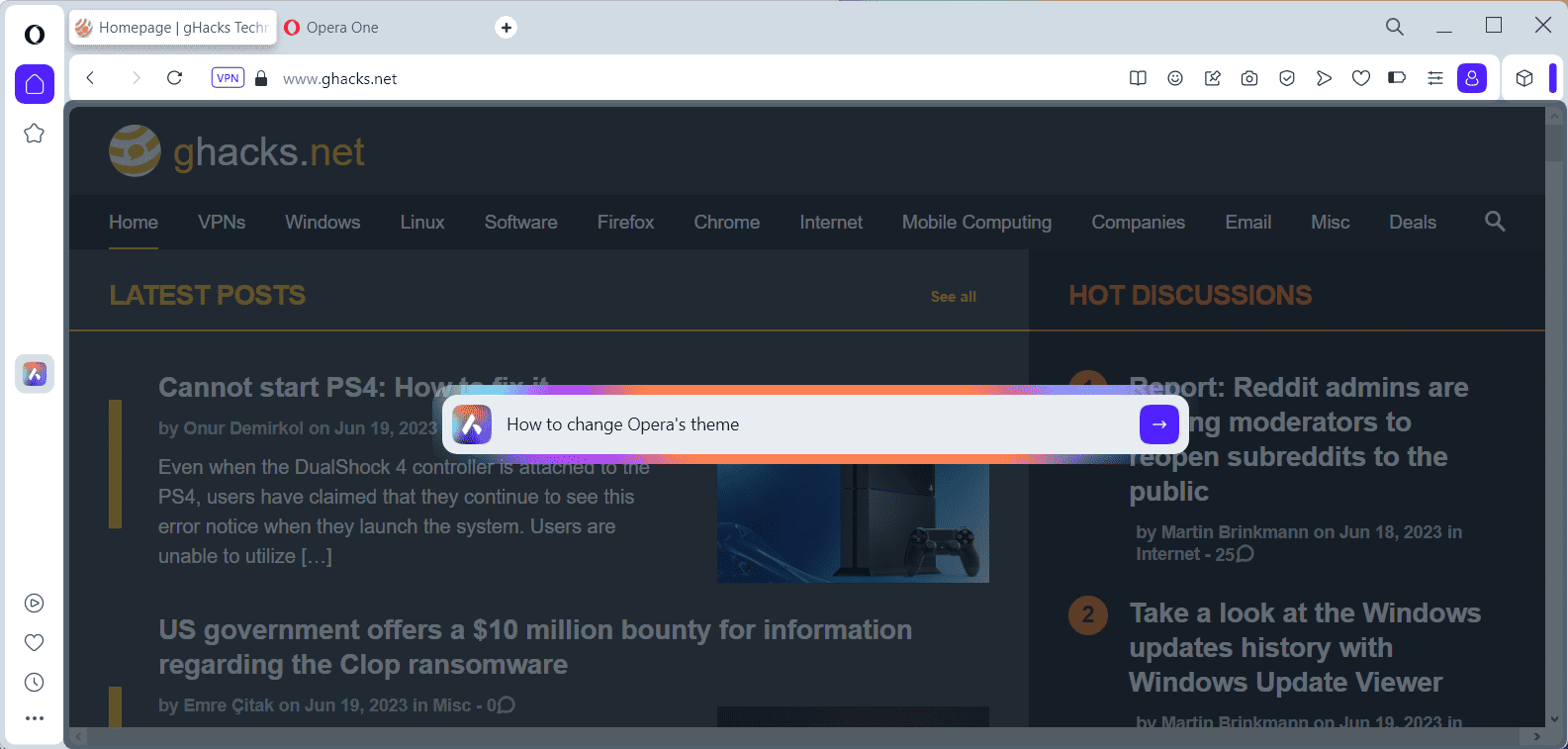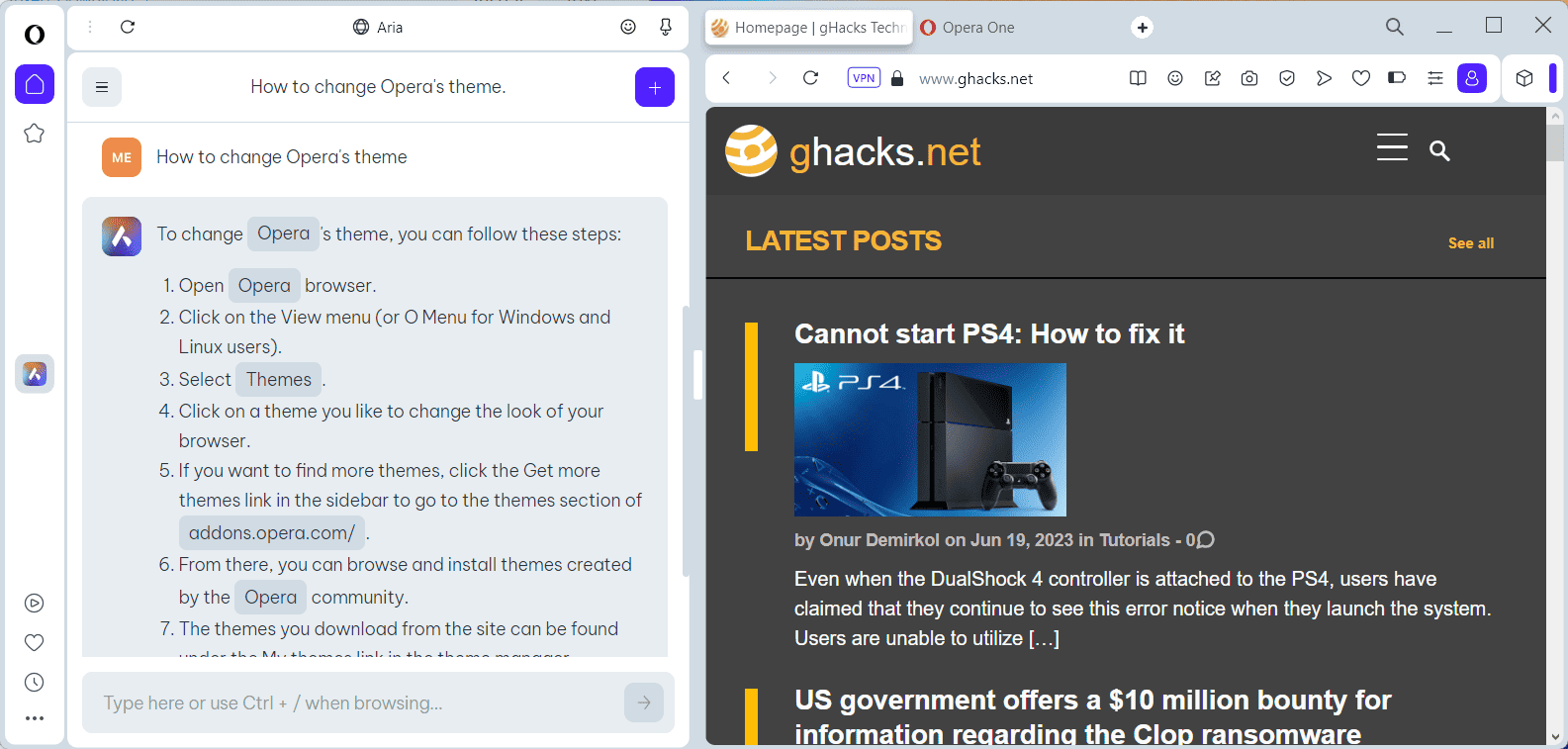Opera Software has launched Opera One officially today after a short beta period. Opera One is the company's reimagining of its flagship browser. It is still Opera browser at its core, but there are also core differences that Opera Software believes ready the browser for the future.
Opera Software unveiled Opera One back in April 2023 and released a development build at the time. Anyone can download the Opera One browser already, but up until now, it was a beta version.
Today's release is the first Stable release of Opera One, which is an important milestone for the company. Opera One is available for Windows, Linux and macOs devices currently, but plans are underway to ship the browser for mobile operating systems as well in the future.
The new release of the web browser looks and feels very similar to the development build that Opera released in April. The main features are the native artificial intelligence that Opera engineers baked into the browser and the modular design.
Speaking of AI; Opera calls it Aria and it is available free of charge in the browser. Engineers developed a Composer AI engine for Opera One that is using OpenAI's GPT as its core. The AI component offers additional capabilities, including accessing the web to retrieve information.
What makes Aria special is that it is aware of the entire support documentation of the Opera browser. Like Windows Copilot, Aria may help Opera users troubleshoot browser issues or make changes to the browser.
To interact with Aria, Opera users use the keyboard shortcut Ctrl+/ (on Mac Cmd+/). This opens a text prompt in the browser to communicate with the AI. There is also an Aria link in the left sidebar of the browser.

Aria requires an Opera account and users need to create one or sign-in to their account before they may start communicating with the AI.
Communication is redirected to the sidebar, which may be pinned so that it is visible all the time. It takes away a bit of space from the main pane and the active website, but the width can be adjusted.

Aria helps Opera users when they run into troubles or issues when using the browser, but it also gives users access to ChatGPT's capabilities. Opera users may ask questions or instruct the AI to do something, e.g., return a list of top games for the PS5 or PC, suggest bars or hotels, or write an essay about a given topic.
Responses are not instant, but do not take too long most of the time. The response time may depend on the input.
Another new feature of Opera One is called Tab Islands. Basically, what the feature does is link related tabs together to improve manageability. It works similarly to tab groups of other browsers, and supports features such as collapsing and expanding tabs, and moving groups around easily.
The third and final major feature of Opera One is the new modular design of the web browser. Opera claims that the new architecture with multithreaded compositor improves the smoothness of navigation. The modular design allows Opera engineers to "build a more powerful and feature-rich browser that is ready for a generative AI-based future" according to the company.
One of the main ideas behind the feature is to adjust the browser's interface contextually and automatically.
Opera Software's Opera One Stable browser is now available for download on the official website.
Thank you for being a Ghacks reader. The post Opera launches Opera One, its AI-powered web browser appeared first on gHacks Technology News.

0 Commentaires